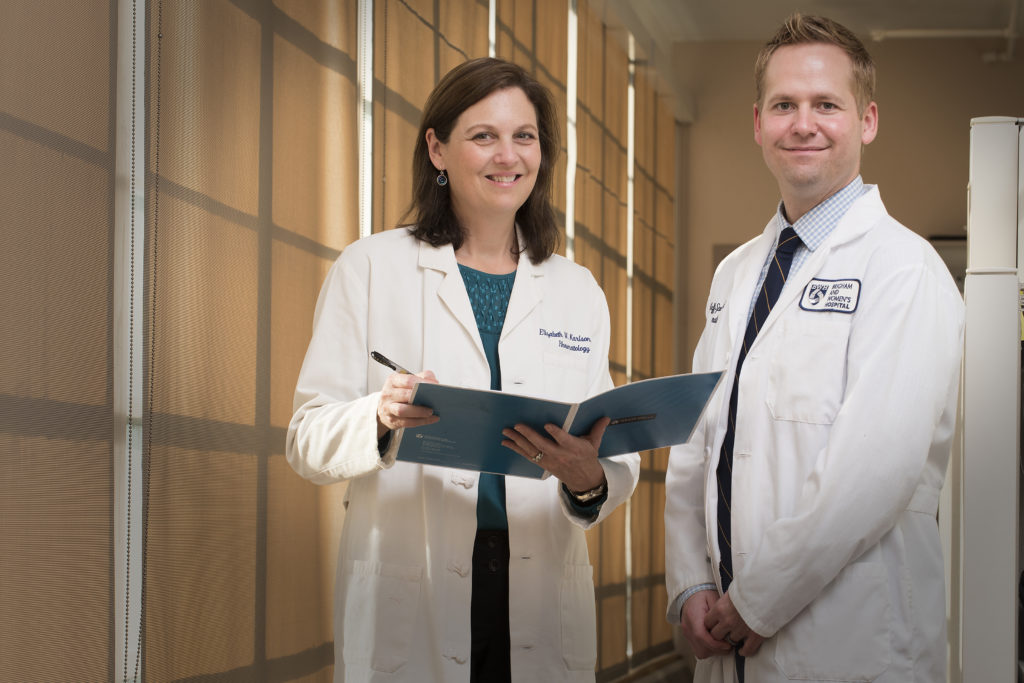
Big data will drive precision medicine in rheumatology. At Brigham and Women’s Hospital (BWH), the combination of massive databases with genomic and clinical data will open new capabilities for the diagnosis, care, and even prevention of rheumatic disease. BWH has invested in large-scale data collection that is now is bearing fruit. The Partners HealthCare Biobank repository of DNA, plasma, and serum samples now has more than 78,000 participants, with 20,000 genotyped samples, as well as survey data with family history, lifestyle and environmental information.
BWH’s investment in large-scale data collection is bearing fruit. The Partners HealthCare Biobank repository of DNA, plasma, and serum samples now has more than 78,000 participants, with 20,000 genotyped samples, as well as survey data with family history, lifestyle and environmental information. In 2015, BWH and Partners joined the NIH-funded Electronic Medical Records and Genomics (eMERGE) Network, one of 11 sites in the United States that combines biorepositories such as the Biobank with data gathered from electronic medical records (EMRs).
Together, the Biobank and eMerge create robust tools for linking genomic data to phenotype, providing greater understanding of how genes and environmental factors influence health and disease.
Rheumatology at BWH has organized these big data resources, allowing researchers to bypass the time and expense usually required to gather samples and create surveys, which allow our rheumatologists to focus on generating information from Big Data. We anticipate that this work will inform drug design and the personalization of care at the bedside.
Elizabeth W. Karlson, MD, who leads the Rheumatic Disease Epidemiology Group in the Division of Rheumatology, Immunology and Allergy, pioneered use of data extracted from medical records, initially from a homegrown EMR. Now as an executive committee member of the Partners Healthcare Biobank, the BWH lead investigator, and director of the Phenotyping Center, Dr. Karlson and colleagues are pursuing essential work in defining pathways that can target medications for specific genotypes. By understanding genetic variants that affect therapeutic responses as well as toxicities, genomics can be used to choose the best treatment for an individual.